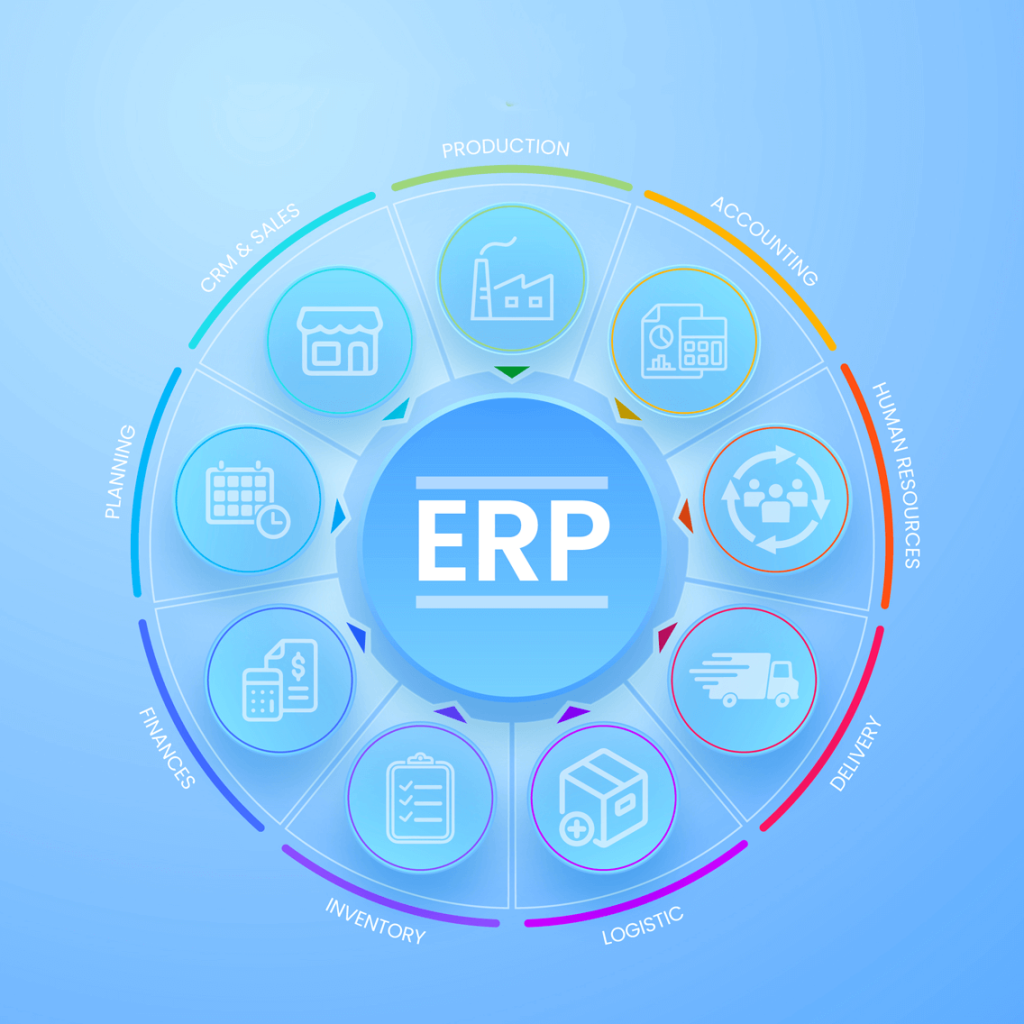In an increasingly complex and competitive business world, efficiency and organization are key to success. Companies must manage a large amount of information and processes, from accounting and logistics to human resources and sales. That’s where ERP, or Enterprise Resource Planning, comes into play. In this article, we will explore what an ERP is and why it is considered the brain of a company.

What is an ERP?
An ERP is a comprehensive software system that integrates and manages all of a company’s key functions and processes in a single centralized system. This includes, but is not limited to, the management of finances, human resources, inventory, purchasing, sales, production and logistics. An ERP allows companies to automate, simplify and improve a wide range of business activities.
Instead of using multiple separate systems or applications for each function (for example, one for accounting, one for inventory management, and one for payroll), an ERP brings all of these functions together into a single cohesive system. This means data flows more efficiently through the organization, saving time and reducing errors.
How does an ERP work?
An ERP operates through a centralized database to which all departments and authorized employees in the company have access. This ensures that data is updated in real time and is available to all interested parties. The system can include a custom user interface for each department, allowing employees to access the specific functions they need to perform their tasks.
ERP automates repetitive tasks such as accounting and financial reporting, reducing the risk of human error. It also provides a holistic view of the company, allowing senior management to make decisions based on accurate and up-to-date data.
Modules of an ERP
ERP systems are usually made up of various modules, each designed to manage a specific function of the company. Some of the most common modules include:
- Finance: This module handles accounting, income and expense management, invoicing, and financial reporting.
- Human Resources: Manages payroll, hiring, time tracking, performance evaluation, and other personnel-related aspects..
- Inventory and Logistics: Control inventory, purchasing, supplier management and logistics.
- Sales and CRM (Customer Relationship Management): Manage sales, customer tracking, and customer relationship management.
- Production: Controls production planning, order tracking, and supply chain management.
Advantages of an ERP
Implementing an ERP system offers a number of significant advantages to businesses, including:
- Improve efficiency: Automate processes, reducing time spent on administrative tasks.
- Informed Decision Making: Provides real-time data that helps management make fact-based decisions.
- Greater visibility: Provides a holistic view of the company, making it easier to track and manage all aspects of the business.
- Error Reduction: Minimizes the possibility of human error, improving data and reporting accuracy.
- Cost optimization: Allows more efficient management of resources and a reduction in operating costs.
- Scalability: ERP systems are scalable and can adapt to the changing needs of the company as it grows.
Challenges of ERP implementation
Although ERPs offer many advantages, implementation is not without challenges. Some of the common challenges include:
- Cost: RP implementation can be expensive, both in terms of software and human resources for training and customization.
- Resistance to change: Employees may resist change and the adoption of a new system.
- Customization and adaptation: Each company is unique, so customizing and adapting an ERP to specific needs can be complex.
- Training: Adequate training is required so that employees can use the system effectively.
- Project management: The implementation of an ERP is a complex project that requires careful and efficient management.
Conclusion
An ERP is the heart of a company, a system that integrates and simplifies the management of all key functions and processes. It offers significant advantages in terms of efficiency, informed decision making and error reduction. However, implementation can be challenging and requires careful planning and effective management. Ultimately, a well-implemented ERP can make a difference in a company’s efficiency and profitability in an increasingly competitive market.


